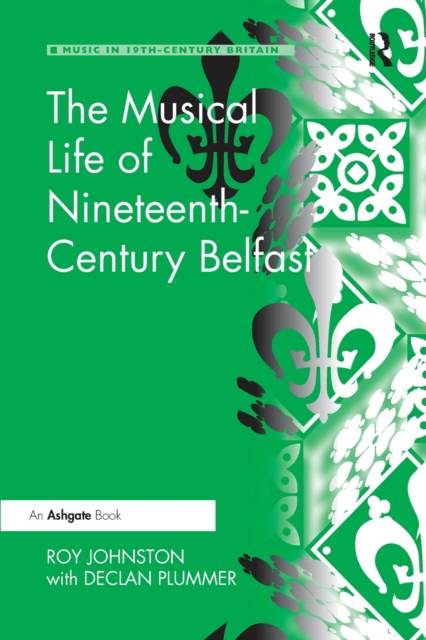
En raison d'une grêve chez bpost, votre commande pourrait être retardée. Vous avez besoin d’un livre rapidement ? Nos magasins vous accueillent à bras ouverts !
- Retrait gratuit dans votre magasin Club
- 7.000.000 titres dans notre catalogue
- Payer en toute sécurité
- Toujours un magasin près de chez vous
En raison de la grêve chez bpost, votre commande pourrait être retardée. Vous avez besoin d’un livre rapidement ? Nos magasins vous accueillent à bras ouverts !
- Retrait gratuit dans votre magasin Club
- 7.000.0000 titres dans notre catalogue
- Payer en toute sécurité
- Toujours un magasin près de chez vous
83,95 €
+ 167 points
Format
Description
Roy Johnston and Declan Plummer provide a refreshing portrait of Belfast in the nineteenth century. Before his death Roy Johnston, had written a full draft, based on an impressive array of contemporary sources, with deep and detailed attention especially to contemporary newspapers. With the deft and sensitive contribution of Declan Plummer the finished book offers a telling view of Belfast's thriving musical life. Largely without the participation and example of local aristocracy, nobility and gentry, Belfast's musical society was formed largely by the townspeople themselves in the eighteenth century and by several instrumental and choral societies in the nineteenth century. As the town grew in size and developed an industrial character, its townspeople identified increasingly with the large industrial towns and cities of the British mainland. Efforts to place themselves on the principal touring circuit of the great nineteenth-century concert artists led them to build a concert hall not in emulation of Dublin but of the British industrial towns. Belfast audiences had experienced English opera in the eighteenth century, and in due course in the nineteenth century they found themselves receiving the touring opera companies, in theatres newly built to accommodate them. Through an energetic groundwork revision of contemporary sources, Johnston and Plummer reveal a picture of sustained vitality and development that justifies Belfast's prominent place the history of nineteenth-century musical culture in Ireland and more broadly in the British Isles.
Spécifications
Parties prenantes
- Auteur(s) :
- Editeur:
Contenu
- Nombre de pages :
- 400
- Langue:
- Anglais
- Collection :
Caractéristiques
- EAN:
- 9780367597535
- Date de parution :
- 14-08-20
- Format:
- Livre broché
- Format numérique:
- Trade paperback (VS)
- Dimensions :
- 155 mm x 231 mm
- Poids :
- 557 g

Les avis
Nous publions uniquement les avis qui respectent les conditions requises. Consultez nos conditions pour les avis.






